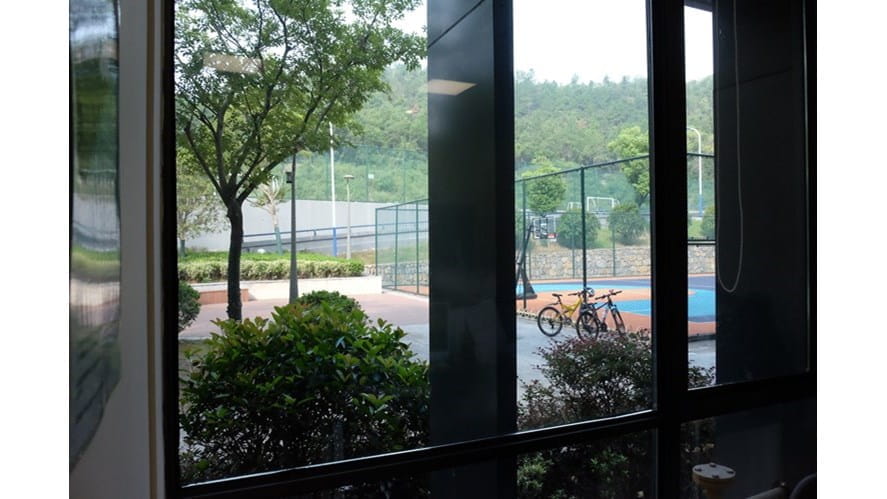We use cookies to improve your online experiences. To learn more and choose your cookies options, please refer to our cookie policy.


Nanjing has been blessed this year with improved standards of air quality, particularly a glorious summer, but with another winter well and truly upon us, as air pollution levels soar, many have been reaching for their face masks. No better a time, therefore, for The British School of Nanjing (BSN) to announce a massive investment into a new air filtration system.
The world of air purification moves very fast, particularly here in China. Technological advancements are being made on a continuous, accelerating basis; our knowledge of air pollution together with its root cause and effect deepens, while all the time regulatory standards are also changing.
5 years ago, when air pollution in Nanjing was at its height, BSN was still in accommodation rented from the Jinling Hotel on the shores of Baijia Lake. Little therefore could be done at the time, but the school could plan ahead. Hence, every room in the school’s purpose-built campus at Cuiping Shan was installed with High-Efficiency Particulate Air (HEPA) purifiers.
Today though, as the damaging effects of air pollution become better known, that which used to be the gold-standard of air purification is now often unable to reach increasingly stringent air-quality targets. No matter the efficiency of widely-used HEPA systems, they remain fundamentally flawed in two ways.
Indoor spaces are typically not well sealed. Traditional air purifiers struggle to keep the indoor air clean, as polluted air constantly streams in from windows, doors and other sources of leakage. At BSN, the air quality issue is exaggerated in its Early Years learning stage; younger children are more susceptible, parents are more concerned and doors are open more often, to enable more free flow between classrooms and play areas outside.
As a result, after great deliberation, BSN installed a CleanFlow positive pressure system, as designed and supplied by Environment Assured, that touts itself as the first and only company in China to consistently aim for the correct air-and-water-safety standards, as set by the World Health Organisation.
According to Charlie Thomson, Founder, Environment Assured, there is no one-size-fits-all solution for addressing any issue over air purification, as each and every building, as well as the use to which it is put, is very different.
As such, BSN spent its Christmas and New Year holiday fitting the new filtration system throughout the second and third floors of the school, with installation on the first and fourth floors to follow at a later date. The new investiture, similar to those employed in hospitals and semiconductor fabrication plants, maintains a slightly greater air pressure inside than outside, by slowly filling the building with perfectly filtered air, much like filling a balloon.
BSN is confident that AQI levels will be very close to zero throughout the installation area, while also going to pains to point out that, contractually, Environment Assured is bound to deliver, “PM2.5 levels of less than 10 ug/m3”.
It would appear the school has reason to be confident. Having joined Nord Anglia Education earlier this year, BSN can draw on the experience of other schools in the group utilising the Environment Assured system, safe also in the knowledge that the CleanFlow system has been installed in all diplomatic residences in Beijing to meet standards for a country well known for some of the world’s cleanest air; New Zealand.
Everything comes at a cost, however. The Nanjinger has learned that the total for the first phase of this new air filtration system at BSN, together with associated costs, such as upgrades to pollution-control doors throughout the school, comes in at close to ¥3 million.
Money aside, when air quality hits the headlines, more often than not, it is PM2.5 on which people’s concerns are concentrated. That which is often forgotten is the level of Carbon Dioxide (CO₂). As people exhale CO₂, levels thereof throughout the day can rise dramatically, leading to many feeling woozy, especially in the afternoon. Hint; it’s not the big lunch they ate.
Thomson revealed, “Current evidence shows that the carbon dioxide levels found in a sealed classroom can reduce cognitive function by as much as 90 percent, causing negative impacts on teaching and learning”.
As a result, BSN is also installing CO₂ filters in its new system, something which headmaster, Matthew Shepherd, hopes shall increase student alertness and be reflected in even better academic results.
Article kindly shared by The Nanjinger:
Frank Hossack
Editor-in-chief and Music Critic, Frank Hossack, has been a radio host and producer for the past 34 years, the past 25 of which working in media in China, in the process winning four New York Festivals awards for his work, in the categories Best Top 40 Format, Best Editing, Best Director and Best Culture & The Arts.
贺福是我们杂志的编辑和音乐评论员,在过去的34年里一直从事电台主持和电台制片的工作。在中国有近25年的媒体工作经验。工作期间他曾经四次获得过纽约传媒艺术节大奖,分别是世界前40强节目奖,最佳编辑奖,最佳导演奖以及最佳文化艺术奖。